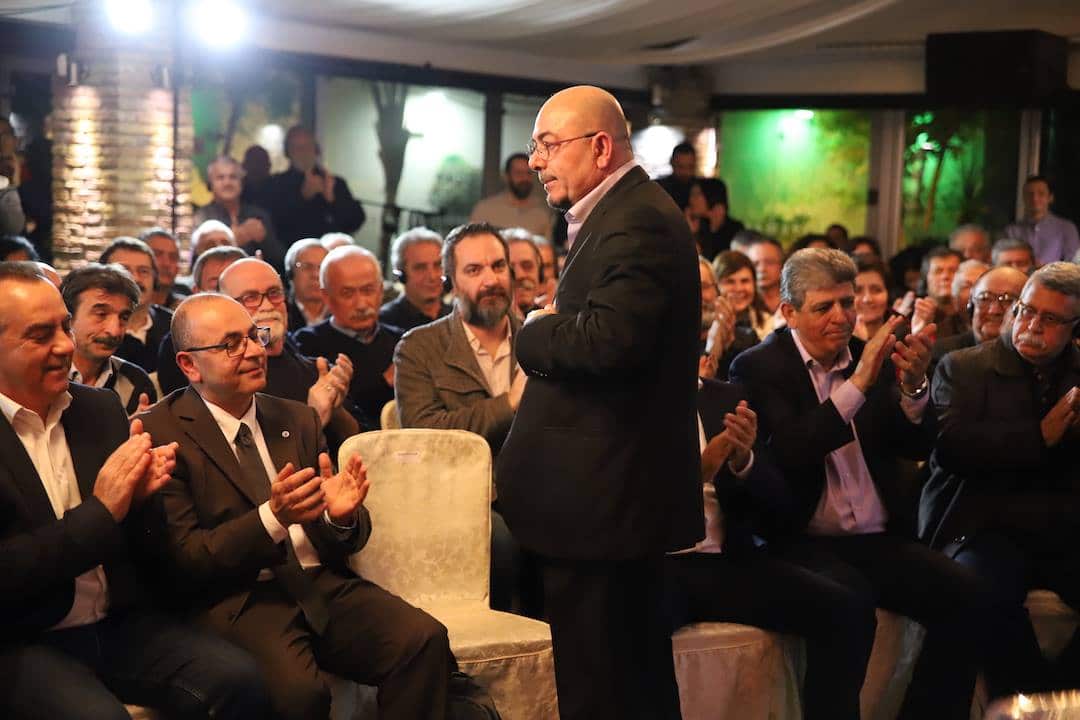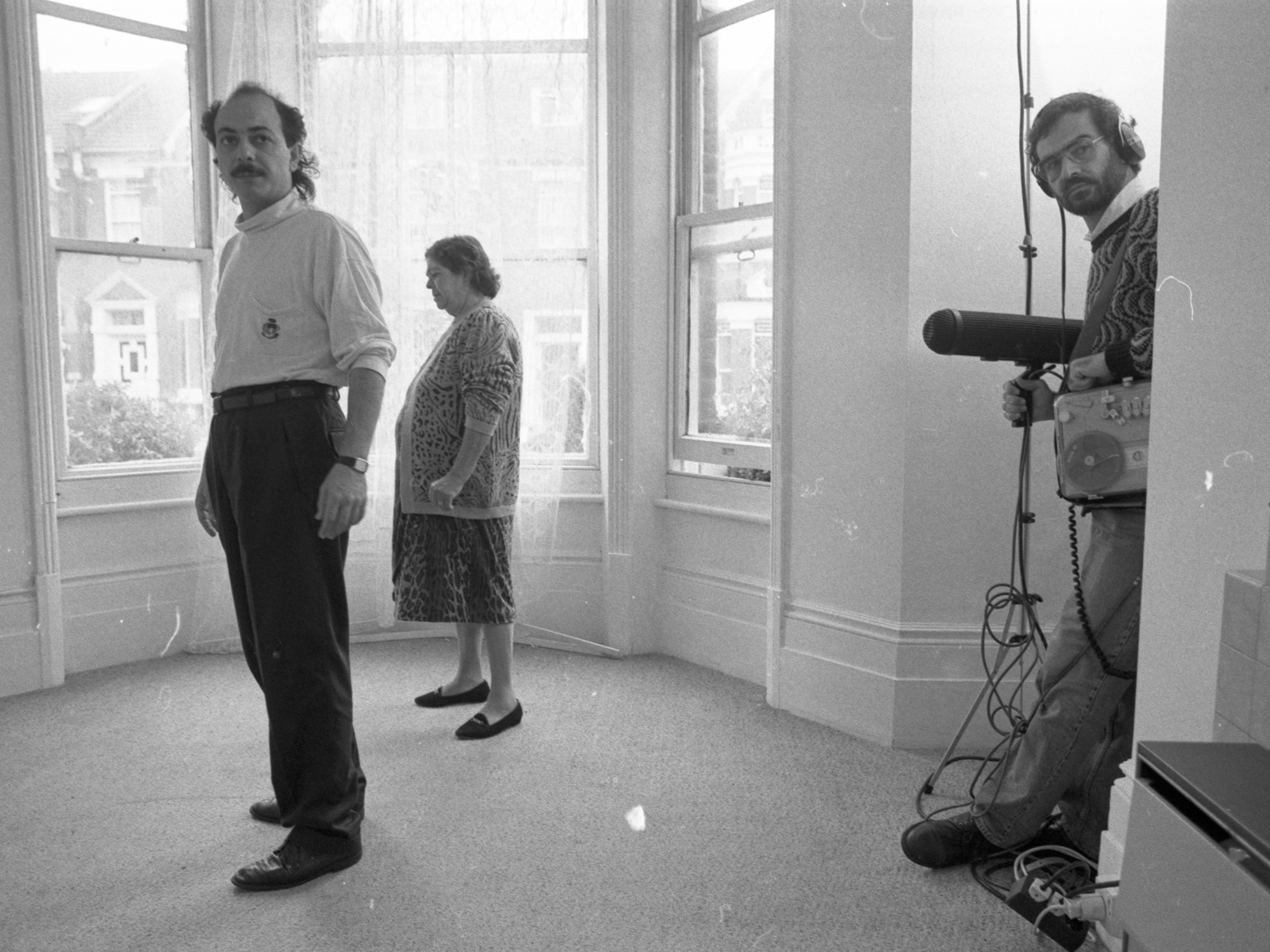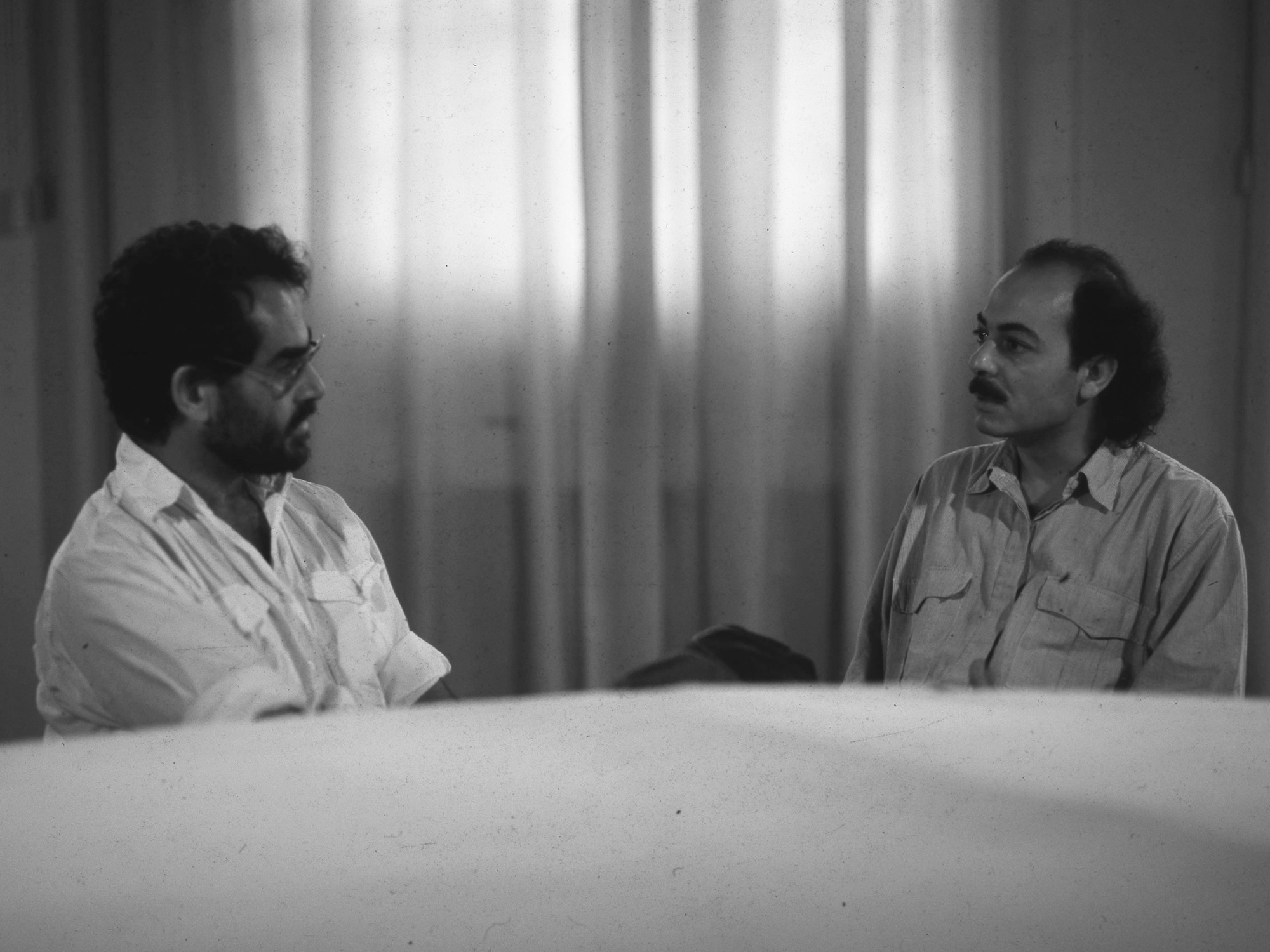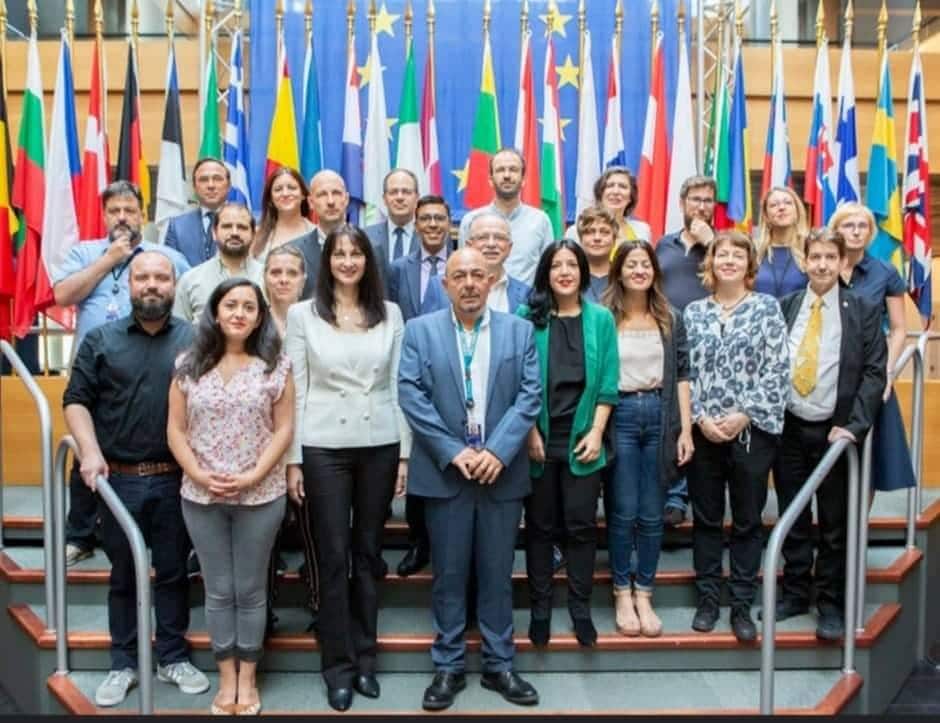Prof. Dr. Niyazi Kızılyürek
Professor Dr. Niyazi Kızılyürek was born on the 7th of December 1959 in Potamia a small bicommunal village in Cyprus. Potamia at the time was one of the many examples of villages in which two communities were living in peace. At the beginning of 1964, he and his family fleed by foot to Lurijina due to inter-communal conflicts. Later, he settled in Argaca village in 1974 and finished High School in Morphou. In 1977 he went to West Germany for higher education. He studied Social Sciences, Politics, and Economics at Bremen University and completed his Master’s and Doctorate there. In 1983, he published his first book on Internal and External Factors of the Cyprus Issue, dedicated to peace and fraternity in Cyprus.
In 1988, he was invited to the southern part of the divided island for a conference organised by the New Cyprus Association. In this conference, he stated that; recollecting the scattered parts of the divided island and ourselves, is only possible through Oliki Kipros/Cyprus as a whole, revealing his utopia.

““I was born into fragmented places and times
It got worse when I tried to put them all together,
I had to break down even further.
I found more than one person,
More than one reality inside me.”
Oliki Kipros/Cyprus as a whole
There can be no conflicting interests in Oliki Kypros, there are universal interests of Cypriots. We can list them as follows:
“No To War, Yes to peace; one homeland, one identity, one country that the Cypriots will identify themselves with. Only then can a consensus be achieved between the two societies, and the dynamics of that consensus can lead us to Oliki Kypros. This process, of course, will not happen spontaneously. The history of societies occurs through the conscious actions of people. So we have to bring to the forefront the following political consciousness we can make concessions to each other, but we don’t give them to strangers. No to denial of ethnic identity, yes to Cyprus as a homeland. The most fundamental basis of Oliki Kypros is to realize that Cyprus is our country. This consciousness leads ethnic groups living in Cyprus to participate in a unified platform, that is, to meet in the consciousness of the country.”
Our Wall
In 1992-1993, together with Panikos Chrysantu, he filmed the documentary Our Wall, which caught considerable attention throughout the island. In 1995, he returned to Cyprus and started working as a lecturer in the Department of Turkology at the University of Cyprus in the southern part of the divided island. This decision pushes Kızılyurek to feel lonely and targeted by throwing him out of ‘us’ in the south, which the society describes as the ‘other’ in terms of his political opinion and accepts him as an enemy; at the same time, the other society in the northern part of the island was thinking that he is living within the enemy, and therefore he is perceived as someone who is considered the ‘other’ and he is targeted by both sides.
Abdi Ipekci Peace and Friendship award
Realising that he cannot be integrated within this fragmented country, Kizilyurek learns to live with his parts, while trying to integrate the country. He attends conferences, gives speeches, writes articles, and supports the creation of a better Cyprus.
In 1997, Kızılyurek is awarded the Abdi Ipekci Peace and Friendship award for his efforts for the rapprochment of Turkey, Greece, and Cyprus. In 2006, he received the “Knight” badge of the French Republic for his academic work and contributions to peace.
The first Turkish Cypriot Member of the European Parliament
In 2019, he was elected to the European Parliament by the votes of Turkish Cypriots and Greek Cypriots as the first Turkish Cypriot Member of the European Parliament. He thus moves the struggle for Oliki Kipros to Europe and perceives the future of the island, in an EU member United Cyprus, consisting of transnational citizens wishing to create a new country based on mutual recognition and equality, outside the two communities trapped in their ethnic identities. He calls this the Third Society and gives it a voice in Europe.










